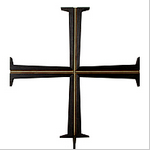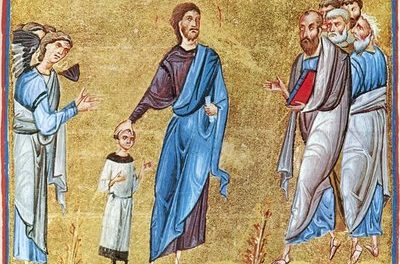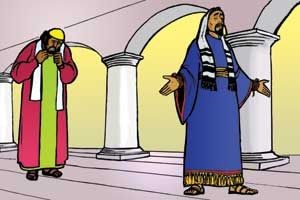Thirty-third Sunday in Ordinary Time
Mal 3:19-20A
Ps 98:5-6, 7-8, 9
2 Thes 3:7-12
Lk 21:5-19
As we reach the end of this liturgical year and begin the next one with the season of advent, we enter a time when our readings focus on eschatology – the “end times” or when God will bring this world to its ultimate fulfillment. Christ has died; Christ is risen; Christ will come again. We are entering the time when we focus in particular on the fact that we’re still waiting.
Like many teachers, I use the phrase “already, but not yet” when I try to explain Catholic beliefs about eschatology to my students. It’s not an easy thing to grasp. On the one hand, the Kingdom of God has already entered into history in the Incarnation. In the living and dying and rising of Jesus we glimpse what the world will be like under God’s Reign: sinners are forgiven, the marginalized are reintegrated into the community, the blind and the sick are made whole, death is defeated. And yet this Kingdom is not yet fully realized; it is also “not yet” here in its fullness. And so we wait with hope.
This “already but not yet” raises the question of how the fullness of God’s Reign will come about. A little over a century ago, many Christians believed that history would move gradually toward the full realization of God’s Reign. They anticipated a path of steady progress toward utopia. The 20th century would be a Christian century. Rather than experiencing a dramatic, apocalyptic intervention from God, we would glide into the Kingdom. World War I and the subsequent tragedies of the twentieth century removed the plausibility of that view of history. This week’s Gospel reading should make us question whether such a view was ever warranted in the first place. Luke’s gospel speaks of a time of great upheaval and persecution that will precede Christ’s return.
Many people see parallels between the time of trial described in Luke’s gospel and our own times – there is war, there is persecution of Christians, etc. I would suggest a different parallel – not that of persecution but rather of dramatic change or even chaos. Then and now we are living through significant upheaval when institutions that some of us thought would be here forever are disappearing. When Luke’s gospel was written, Jesus’ “prediction” of the destruction of the temple had already come true. That was undoubtedly a very sad, disorienting, even devastating event. It must have been as if the world itself had begun to come crashing down.
The collapse of contemporary institutions is not on the scale of the destruction of the temple, but it is sad and disorienting. Many of the institutions and fixtures of life that I love most are at risk or already gone. I love books. The publishing industry is under severe stress and perhaps even the notion of books as an important mode of communication and scholarship is in question. I love universities and the life of the mind. Today the survival of higher education as we know it is in question, replaced by a model of information sharing that is devoid of relationship and where the value of education beyond vocational training is at risk of being forgotten. I love the church, but for years it has shown every sign of being in severe decline. This is a time in which it is difficult to maintain a sense of place, purpose, and direction.
This week’s readings are a helpful reminder that this is not the first time of trial nor will it be the last. Like the people to whom Malachi preached, it may seem to us that we live in an age when the proud and the “evildoer” hold sway. Like Luke’s audience, it may seem to us that the world is spinning toward famine, earthquake, war, and plague. But in the midst of this there must also be hope. We must hope and believe that the “already” of eschatology is true and real, and so is the promise that eventually “there will arise the sun of justice with its healing rays.”




